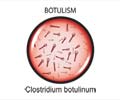Hazardous chemicals found in the Apple iPhone are not only toxic to the environment, they can also “interfere with sexual development in mammals”
Hazardous chemicals found in the Apple iPhone are not only toxic to the environment, they can also “interfere with sexual development in mammals”, say Greenpeace scientists.
In the latest of a series of reports chastising Apple for its apparent disregard for the environment, Greenpeace said that its own tests of the iPhone uncovered hazardous substances, already eliminated by other mobile phone manufacturers.The environmental agency said it found that the iPhone contained brominated compounds and hazardous PVC plastics. However, the device appeared to comply with safety regulations, which prohibit the use of lead, cadmium, mercury and chromium, it said.
“Two of the phthalate plasticisers found at high levels in the headphone cable are classified in Europe as 'toxic to reproduction, category 2' because of their long-recognised ability to interfere with sexual development in mammals,” said Greenpeace Research Laboratories senior scientist, Dr David Santillo. It is not clear whether the same plasticisers are found in other Apple products, such as the iPod.
While not prohibited for mobile phones, phthalates are banned from use in toys and childcare products across the European Union. Greenpeace further said Apple had made little progress toward making its products green, since the iPhone contained both PVC and BFRs. The agency also questioned whether the iPhone models slated to launch in other countries would see the chemicals eliminated.
“[Apple] has missed the call on making the iPhone his first step towards greening Apple's products. It seems that Apple is far from leading the way for a green electronics industry as competitors, like Nokia, already sell mobile phones free of PVC,” said Greenpeace toxics campaigner Zeina Alhajj.
Presently, Greenpeace has published a slideshow and YouTube video showing how the iPhone was disassembled. Apple has so far declined to comment on the Greenpeace report.
Source-ANI
LIN/V










